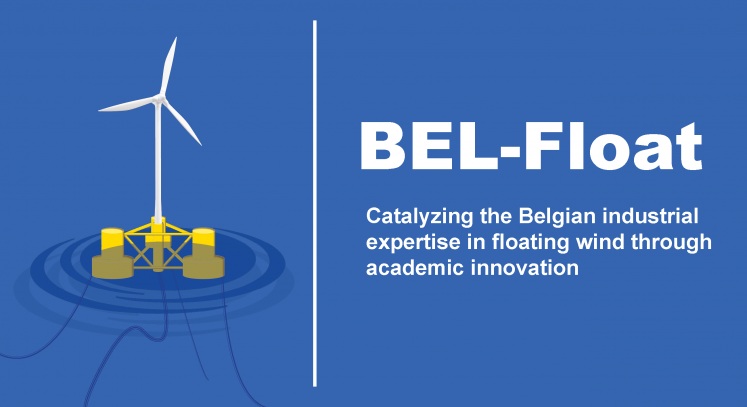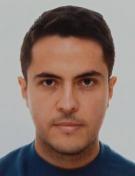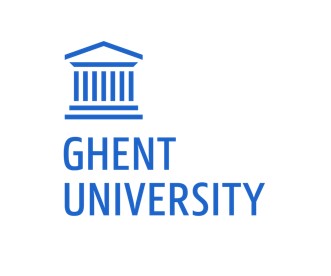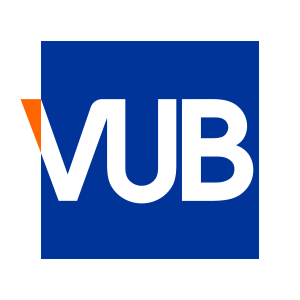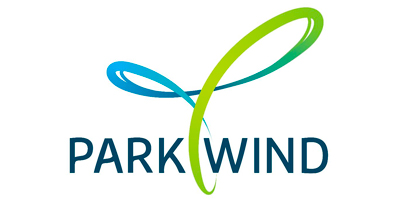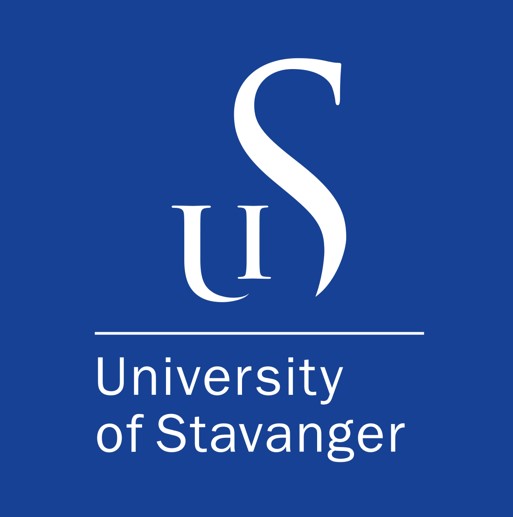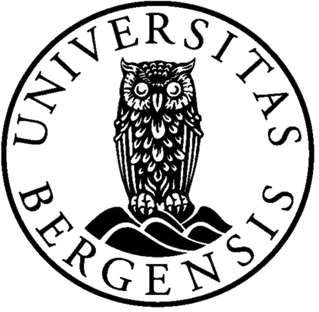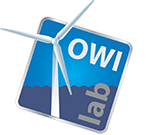Catalyzing the Belgian industrial expertise in floating wind through academic innovation
|
|
For our Belgian offshore wind industry to stay as competitive as they currently are, they need to fully enter the emerging and promising market of floating wind. But to do so, they require a competent and long-term academic base, which BEL-Float will provide: a select group of junior researchers, and their surrounding ecosystems, will, in close collaboration with industry, acquire knowledge and skills to face the most urgent challenges in floating wind. A unique bonus is our extensive cooperation with Norwegian universities, strengthening the Belgian-Norwegian energy alliance. |
Floating Offshore Wind & Belgium?
Within the offshore energy sector, the next large challenge is the emerging market of Floating Offshore Wind. Overall, floating farms allow more area to be exploited for wind energy generation, reduce visibility from the shore and can be assembled in areas with more powerful and constant winds. According to the International Energy Agency four-fifths of the global offshore wind power potential is in waters deeper than 60 meters and thus better suited to floating turbines than to bottom-fixed.
Although Floating Offshore Wind will not be installed in the Belgian waters, it will provide enormous opportunities for the Belgian industry and research partners to transfer skills and leverage their expertise from bottom-fixed to floating constructions. An important bottleneck for the Belgian industry at this moment is the lack of scientific knowledge and innovation specific to Floating Offshore Wind. The current Belgian academic knowledge on Floating Offshore Wind is scattered and not all basic topics have been thoroughly explored. There is also not yet a future-proof research plan, based on industrial input and feedback. This might result in missed opportunities to create synergies for practical applications. But this is where BEL-Float steps in.
Project Goals or objectives
The main goal of the BEL-Float project is to be a catalyst for the Belgian offshore wind sector in the field of floating offshore wind to ensure and strengthen their top-position as an industrial world player in offshore energy expertise and knowhow, by prominently putting floating offshore wind on the academic research agenda.
The two main objectives are:
-
To create an innovation backbone by innovation and knowledge building:
-
compiling and absorbing research expertise of our Norwegian academic partners
-
initiating new and innovative research (see 'Research' below)
-
setting-up a future research and development roadmap
-
-
To provide a skilled workforce: by developing a training and skills building program, which will be perpetuated in a series of structural advanced floating offshore wind courses.
Research
The project has identified 6 research project tracks with topics which are of high importance for hydrodynamics & integrated design, field monitoring & data and exploitation & lifetime.
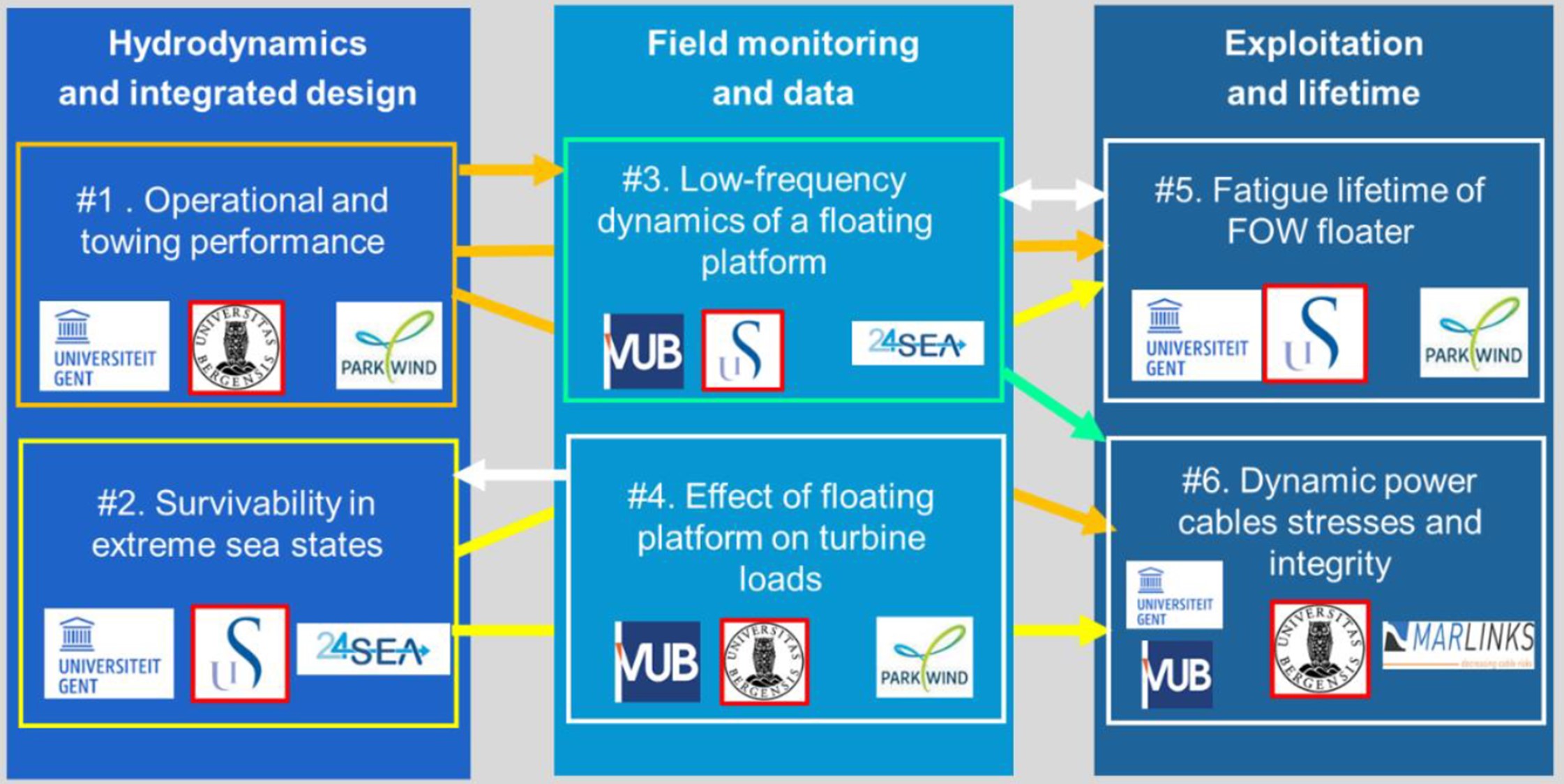
An overview of our priority research lines:
Topic 1 = Operational & towing performance
Description: Operational performance assessment and development of a time-efficient software to optimize a towing operation of a floating offshore wind turbine (FOWT) platform
Research video pitch: WATCH HERE
 |
|
Topic 2 = Survivability in extreme sea states
Description: Development and optimization of simulation tools for operation of a floating offshore wind turbine in extreme conditions, using numerical and experimental modelling of the involved aero- and hydrodynamics
Research video pitch: WATCH HERE
 |
|
Topic 3 = Low frequency dynamics of a floating platform
Description: Development of sensor topologies and operational modal analysis algorithms to assess and monitor the low frequency dynamics of floating offshore wind platform(s)
Research video pitch: WATCH HERE
 |
|
Topic 4 = Effect of floating platform on turbine loads
Description: Development of sensor topologies and data analytics to assess the effects of the floating platform dynamics on the turbine loads and energy production
Research video pitch: WATCH HERE
 |
|
Topic 5 = Fatigue lifetime of floating offshore wind floater
Description: Development of numerical tools for fatigue damage assessment and lifetime prediction for a floating offshore wind platform subjected to multiple non-linear stochastic load sources
Research video pitch: WATCH HERE
 |
|
Topic 6 = Dynamic power cable stresses and integrity
Description: Assessing dynamic power cable deformation, stresses and integrity using numerical modelling and operational modal analysis of DAS data
Research video pitch: WATCH HERE
|
|
|
Research results
- Topic 1 - Operational & towing performance: Dataset containing the results of numerical simulations of the operational performance
analysis - Topic 3 - Low frequency dynamics of a floating platform: BEL_Float_Topic3_Deliverable_1.pdf
- Topic 4 - Effect of floating platform on turbine loads: D.1.1.4.1. Review report on literature in the domain of FOWT loading and performance monitoring.pdf
- Topic 5 - Fatigue lifetime of a FOW substructure:
- D5.1 - Multi-dimensional modelling strategy: BEL_Float_Topic_5-Deliverable_1.pdf
- D5.2 - Surrogate model to map fatigue strength to different EOCs: BELFloat-Topic 5-Deliverable 2.pdf
- Topic 6 - Dynamic Power Cables Stress and Integrity: D6.1 - Multi-dimensional modelling strategy: BEL_Float_Topic_6-Deliverable_1.pdf
BEL-Float publications
-
An Engineering Method for Structural Analysis of Semisubmersible Floating Offshore Wind Turbine Substructures | by Victor Rappe1, Kris Hectors 1,2,,Muk Chen Ong 3 and Wim De Waele 1,2
-
Application of OMA for Low-Frequency Modes Detection in FOWT: Numerical Study on OC4-DeepCwind Semi-Submersible | by Abdulelah Al-Ghuwaidi, Ajie Pribadi, Wout Weijtjens and Christof Devriendt
-
An assessment of the metocean conditions in the Belgian offshore zone | Rebeca Marini, Konstantinos Vratsinis, Pieter-Jan Daems, Timothy Verstraeten, Etienne Cheynet and Jan Helsen
-
Open-access simulation dataset of the floating wind turbine DeepCwind OC4 in wind and waves | Ajie Brama Krishna Pribadi, Abdulelah Al-Ghuwaidi and Evert Lataire
Zenodo
Interested in even more information (posters, presentations, etc.), then make sure to also check our BEL-Float Zenodo repository
Team
BEL-Float has 5 project partners:
The project is also supervised by an academic advisory board (with our Norwegian partners of the Universities of Stavanger and Bergen) and an industrial advisory board (offshore wind companies via OWI-Lab)
Project basics
- Number of Partners: 5
- Coordinator: Ghent University
- Start Date 01/11/2023
- Duration: 3 Years
- Budget: 1.996.712 euro (of which funded: 1.596.652)
- Funded by FPS Economy
